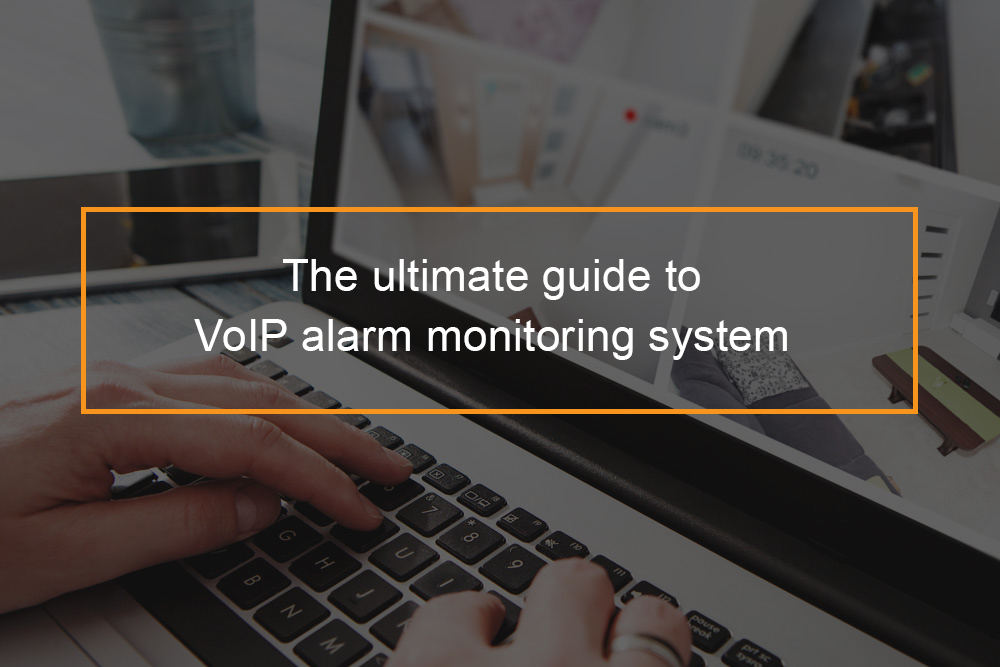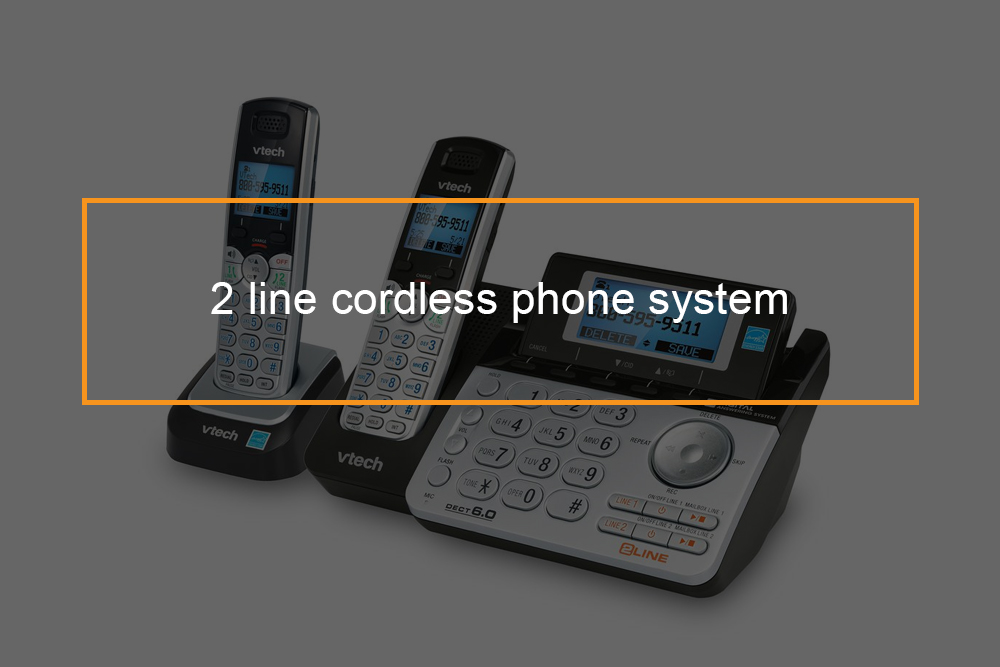
To connect the alarm system to VoIP, first, connect the telo phone jack directly to the feed-in jack on the alarm panel. The output jack of the alarm panel disseminates the phone signal to your house wiring. You also have to set the Telo to Alarm Mode in your VoIP phone account. Finally, make sure the alarm is CID (Contact ID) to communicate with the alarm company receiver.
Today many people are switching from the traditional based phone line to VoIP, more robust services provided via cellular or internet providers. These technologies have been incorporated in the alarm communication system too. Yes, VoIP technologies can work with home alarm systems. But, each service has its trade-offs.
For example, you may find that your neighbor may be able to get the signal perfectly in their home, but it is challenging for you to get just one bar. Despite, what network provider is on, a cell signal booster will fix this issue and improve the signal in your home. Before you connect the plug on your current phone system, read this guide about how alarm systems work with VoIP and phone lines.
Will my alarm system work with VoIP phones?
Will my alarm work with my VoIP phone system?
It all depends on Voice over Internet Protocol VoIP and your alarm system provider. The two most essential considerations are the way that VoIP security system communicates with the monitoring center, and how the VoIP service accesses power. Many alarm systems depend on standard phone lines to connect to the monitoring center. Alarm system signals travel as sound through phone wire.
Voice over IP is more like broadband connection: your voice is changed into digital data at your home and spurted over your internet connection to the listener at the other end. Every VoIP provider uses different technology to achieve this, not all which are compatible with each alarm system. The signal conveyed by your VoIP service may not be identified by the monitoring center as an alarm signal.
Compared to traditional phone lines (frequent known as Plain Old Telephone Service; POTS), VoIP has another vital consideration; backup power. When you experience a power failure, any device without battery backup will not be useful. Any professional security system or senior safety team will have its dedicated battery backup for just a situation like a power outage, and standard phone lines operate well without power. However, most homes do not have a similar backup for their digital phones or internet connections.
Communications technologies available for use with an alarm system
Thanks to technology advancement, alarm systems are designed to operate with many different kinds of communication services. The most common services include cellular radio, traditional phone lines, VoIP, and internet. Let us look at each service.
Traditional phone lines
These systems use a copper line to transmit the communication signal to the alarm monitoring company. The phone line is basically used by both the household and the alarm system.
Advantages of traditional phone lines
- Typically land lines are known as the most reliable of the services.
- Monitoring service-connected by a traditional phone line can work during power outages through the phone company since copper wires are not affected by power.
Disadvantage of traditional phone lines
- Traditional phone lines use copper lines, which are vulnerable to both natural and deliberate outages.
- Because traditional phone lines depend on dial tone, the connection is slower than other services.
Cellular radio alarm system
Cellular radio signals deploy digital transmission, just like your mobile phone, to transfer alarm signals to the monitoring system.
Cellular radio alarm advantages
- Compared to other phone services, cellular radio can carry more data at greater speeds
- Because the connection is wireless, cellular radio is typically tamper-proof; therefore, deliberate outages are not common.
Cellular radio alarm disadvantages
- Cellular radio device needs power at home to operate. During a power outage, the alarm depends on the backup battery for operation. Back up battery lasts between two top-four hours.
VoIP (Voice over internet protocol) system
VoIP and alarm system monitoring is a newer communication service that takes analog audio signals, such as what you hear when you talk on the phone and changes them into digital signals or digital data that can be transmitted over the internet. It is common in business security systems.
Advantages of VoIP alarm system
- Most traditional homes alarm panels can connect to a VoIP phone line without upgrading any of the panel’s hardware.
- VoIP with alarm systems is frequent, more affordable, and feature-rich than other phone services.
- VoIP system is modified with calling features such as enabled call quality and caller ID.
Disadvantage of VoIP alarm system
- When using a home or business phones systems, the power to the phone line is dependent upon power at home or office. Depending on your provider, you might lose phone service in case the internet or power is out.
- Some VoIP providers use voice compression to decrease the amount of bandwidth required to transport the voice traffic, which can result in distortion of the signal coming from the home’s alarm system, efficiently disabling the remote monitoring of the system. Select a provider that uses a managed facility voice network (MFVN) that does not use voice compression and is the most congenial with alarm systems.
The internet based alarm system
The internet provides some of the greatest capabilities and features for security systems, including; fire alarms, fire extinguishers, fire protection systems, video surveillance to the monitoring station via DSL, wireless, or phone cables internet connection.
Advantages of internet systems
- Internet services have many features; for example, you can access cameras, entry systems, thermostats, lighting, and a various number of devices in the office or home from any browsers. Such features enable fire safety, health safety, environmental safety, and the overall safety of your home from intruders.
- An alarm connected by an internet service is always on and connected to the alarm central station.
The disadvantage of internet service
- Internet does not only affect the quality of your VoIP voice calls but also how your alarm system operates. The Internet is not reliable for security applications since it needs power and internet connectivity at the office or home to operate.
- Alarm systems monitored through the internet need specific hardware to allow the connection so that an upgraded panel will be vital.
- Most internet providers use throttling during peak hours to enable adequate usage for all of their customers. Throttling can lead to unpredictable problems with alarm signals.
How do alarm systems work?
How VoIP alarm system work?
The alarm system operates by sending out signals to the central monitoring system when sensors are faulted. The central stations of an alarm system are the alarm control panel. All system sensors and other equipment to communicate with the panel. The panel requires a communicator to send signals.
The aim of an alarm system is to allow the user, alarm company, and the right authorities to know when there is an emergency. These include fire, intrusion, medical crisis, or environmental problem. The alarm system identifies these emergencies using various sensors. Sensors can be built-in a security system, or they can communicate wirelessly via the use of a wireless receiver.
When a sensor is faulted or activated, it sends an alert to the alarm access control panel. The system will then act based on the setting for that zone. When an alarm does happen, the system sends out an alert to a central monitoring station.
Typically the central monitoring station operates around the twenty hours. A security specialist will notice the alarm immediately and start contacting the end user and the local authorities.
Alarm monitoring VoIP phone company
The first thing you do if you want to switch to VoIP talks to your local phone company about the impending switch. You should also talk about communication technologies that are compatible with your alarm system. After you select a new phone service, make another call to your alarm company to make sure that the new service is functioning well with your alarm.
If you are comparing security systems, you can check the following alarm companies: Safewise,adt alarm security, FrontPoint, or Vivint Platform. Choose a reliable provider. To guarantee your safety, most security system providers will keep an updated database of telephone providers in your region.
Fully compatible telephone providers are provided the status of the qualified managed facility voice network. Other VoIP security systems may need extra equipment for communication or battery backup like a dedicated powered network connection or cellular option.









